Are you curious about the unique workplace culture in Singapore? As a global business hub, Singapore is home to a diverse range of companies and employees from different backgrounds. The country’s work culture is notable for its emphasis on punctuality, respect for authority, and focus on teamwork. In this article, we will explore the key elements of Singaporean work culture and how it differs from other countries.

Understanding Singapore’s Workplace Culture To understand Singapore’s work culture, it’s essential to recognize the country’s multicultural influences and many rules and conventions that guide employee behavior. Singapore’s Ministry of Manpower has legislation for workplace safety and health, and there are many rules for everything, from punctuality to employee interaction. Singapore’s work culture emphasizes rules and regulations that govern the workplace and the employees.
Key Elements of Singaporean Work Culture In this article, we will delve into the key elements of Singaporean work culture, such as the importance of hierarchy and respect for authority, the role of teamwork, and the emphasis on punctuality and efficiency. We will also discuss the impact of Singapore’s economy on workplace culture and the future of work in Singapore. Whether you’re a local or a foreigner working in Singapore, understanding the country’s work culture is essential for success in the workplace.
Key Takeaways
- Singapore’s work culture is notable for its multicultural influences and many rules and conventions that guide employee behavior.
- The country’s work culture emphasizes hierarchy, respect for authority, teamwork, punctuality, and efficiency.
- Understanding Singapore’s work culture is essential for success in the workplace, whether you’re a local or a foreigner.
Understanding Singapore’s Workplace Culture
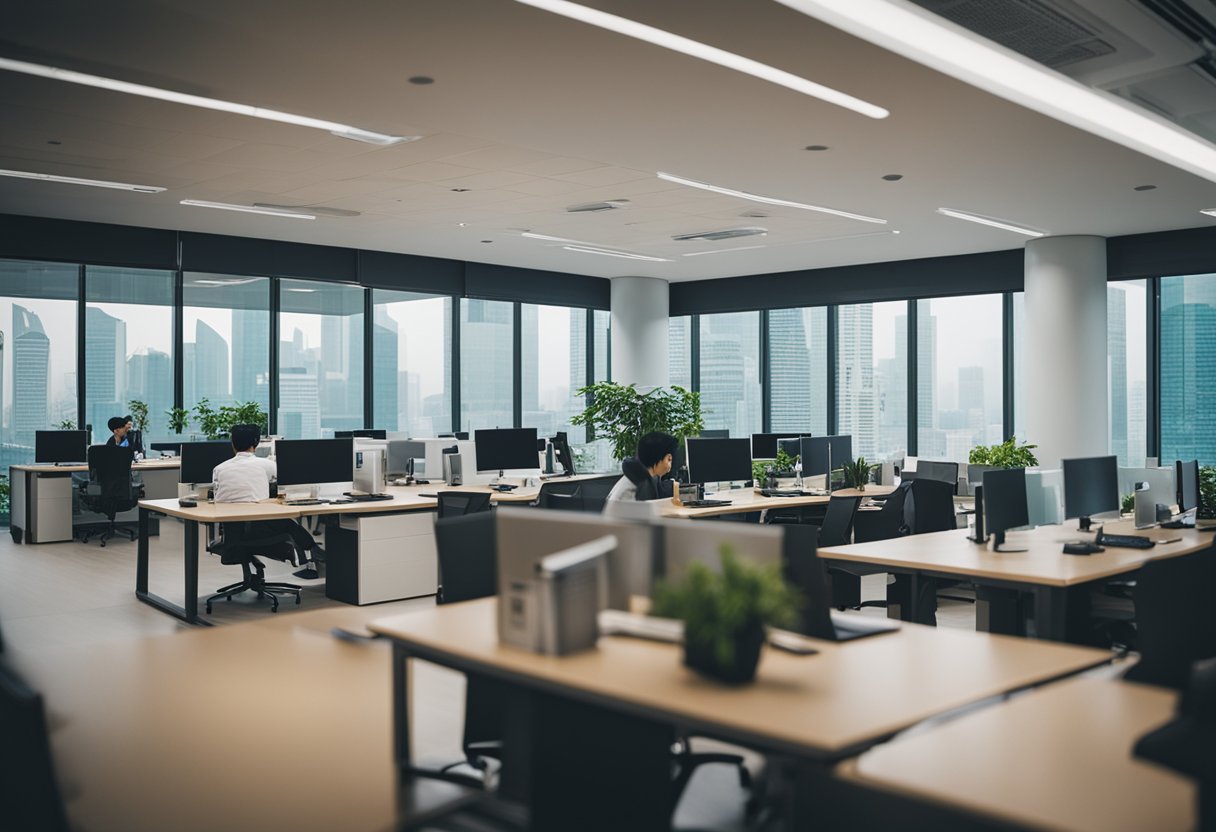
If you’re planning to work in Singapore, it’s essential to understand the country’s work culture. Singapore has a diverse workforce, with approximately one-third of its workforce being foreigners. The work culture in Singapore is heavily influenced by its cultural diversity, which is rooted in Asian traditions.
One of the essential aspects of Singapore’s work culture is punctuality. Being on time is crucial, and being late is considered disrespectful. It’s also essential to dress appropriately for work, as Singaporeans value professionalism and take pride in their appearance.
Another crucial aspect of Singapore’s work culture is respect for authority. Singaporeans have a hierarchical approach to management, and it’s essential to show respect to your superiors. It’s also crucial to maintain harmonious relationships with your colleagues, as Singaporeans value teamwork and collaboration.
Singapore’s Ministry of Manpower has strict legislation for workplace safety and health, and it’s essential to follow these rules to ensure a safe and healthy work environment. Singapore also has a strong emphasis on work-life balance, and many companies offer flexible work arrangements to their employees.
Overall, Singapore’s work culture is unique and diverse, and it’s essential to understand and respect its traditions and values. By embracing Singapore’s work culture, you’ll be able to build strong relationships with your colleagues and succeed in your career.
Key Elements of Singaporean Work Culture

When it comes to Singaporean work culture, there are certain key elements that you should be aware of. In this section, we will discuss the major aspects of Singaporean work culture that you should keep in mind.
Hierarchy and Respect
Hierarchy and respect for authority are important aspects of Singaporean work culture. It is common for companies to have a clear chain of command, and employees are expected to follow the rules and regulations set by their superiors. Respect for authority is also reflected in the way employees address their superiors, with titles such as “Sir” or “Madam” being commonly used.
Communication and Relationships
Communication and relationships play a significant role in Singaporean work culture. Communication channels are typically formal and direct, with a focus on clarity and efficiency. Building relationships with colleagues and clients is also emphasized, with networking and socializing being important aspects of business culture.
Work Ethic and Dedication
Singaporean work culture places a strong emphasis on work ethic and dedication. Employees are expected to be hardworking and committed to their jobs, with long working hours being common in some industries. Workaholics are often praised for their dedication to their jobs.
Professionalism and Etiquette
Professionalism and etiquette are highly valued in Singaporean work culture. Dress code is typically formal, with business attire being the norm. Physical contact is generally avoided in professional settings, and the exchange of business cards is considered an important aspect of networking.
Overall, Singaporean work culture is characterized by a strong emphasis on hierarchy, respect, communication, work ethic, and professionalism. By understanding these key elements, you can better navigate the workplace culture in Singapore and build strong relationships with your colleagues and clients.
Diversity in Singapore’s Workplace
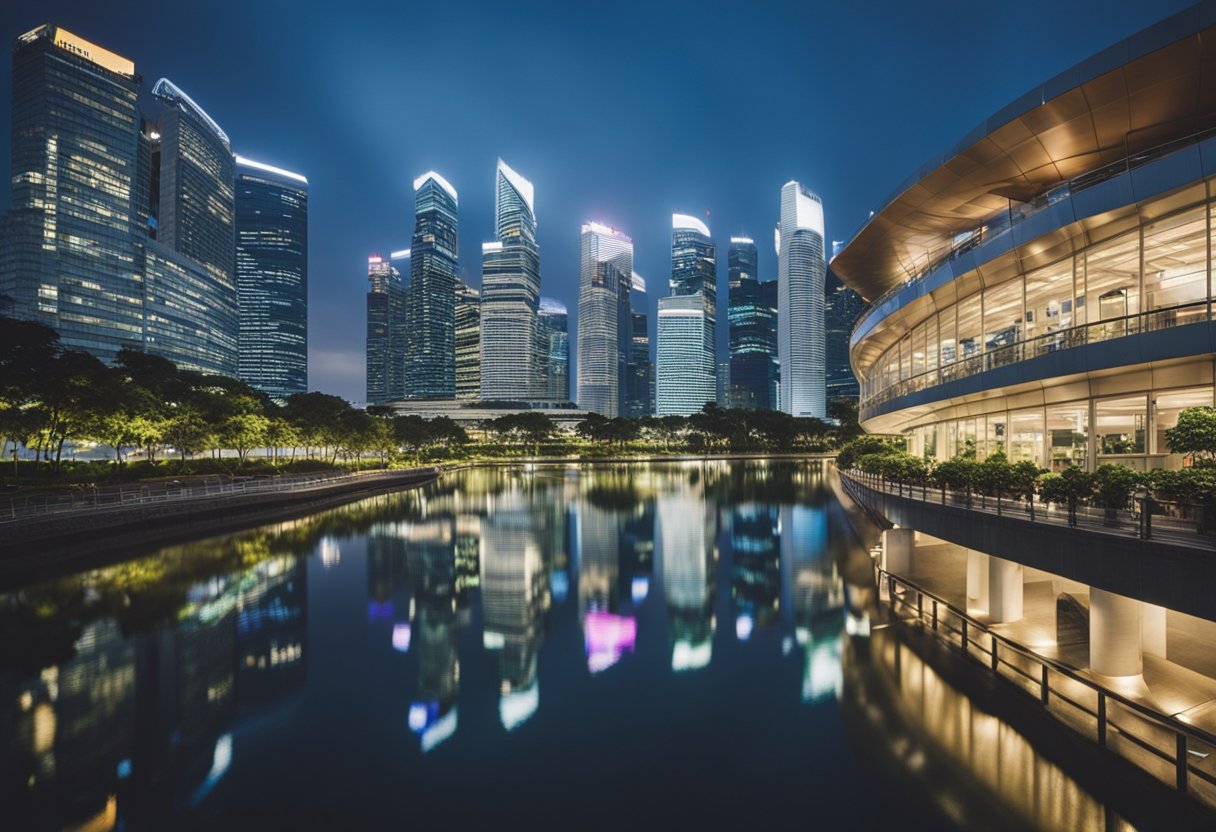
You’ll find that Singapore’s workforce is diverse, with people from various ethnicities, cultures, and nationalities working together. The three main ethnic groups in Singapore are Chinese, Malays, and Indians, and the government has made a conscious effort to promote racial harmony and inclusivity in the workplace.
As a result, you’ll find that many companies in Singapore have a diverse workforce, with employees from different backgrounds and nationalities. This diversity brings a range of perspectives and experiences, which can lead to more creative and innovative solutions to problems.
However, it’s important to ensure that everyone feels included and valued in the workplace. This means promoting cultural diversity and inclusivity, and creating an environment where everyone feels comfortable and respected.
If you’re a foreigner working in Singapore, you may find that the work culture is different from what you’re used to. However, Singapore’s multi-national workforce means that there’s a lot of cultural exchange and learning that takes place, which can be an exciting and enriching experience.
Overall, diversity is an important aspect of Singapore’s workplace culture, and it’s something that companies should strive to promote and maintain. By creating an inclusive and diverse workplace, companies can attract and retain top talent, and foster a culture of innovation and creativity.
Work-Life Balance in Singapore
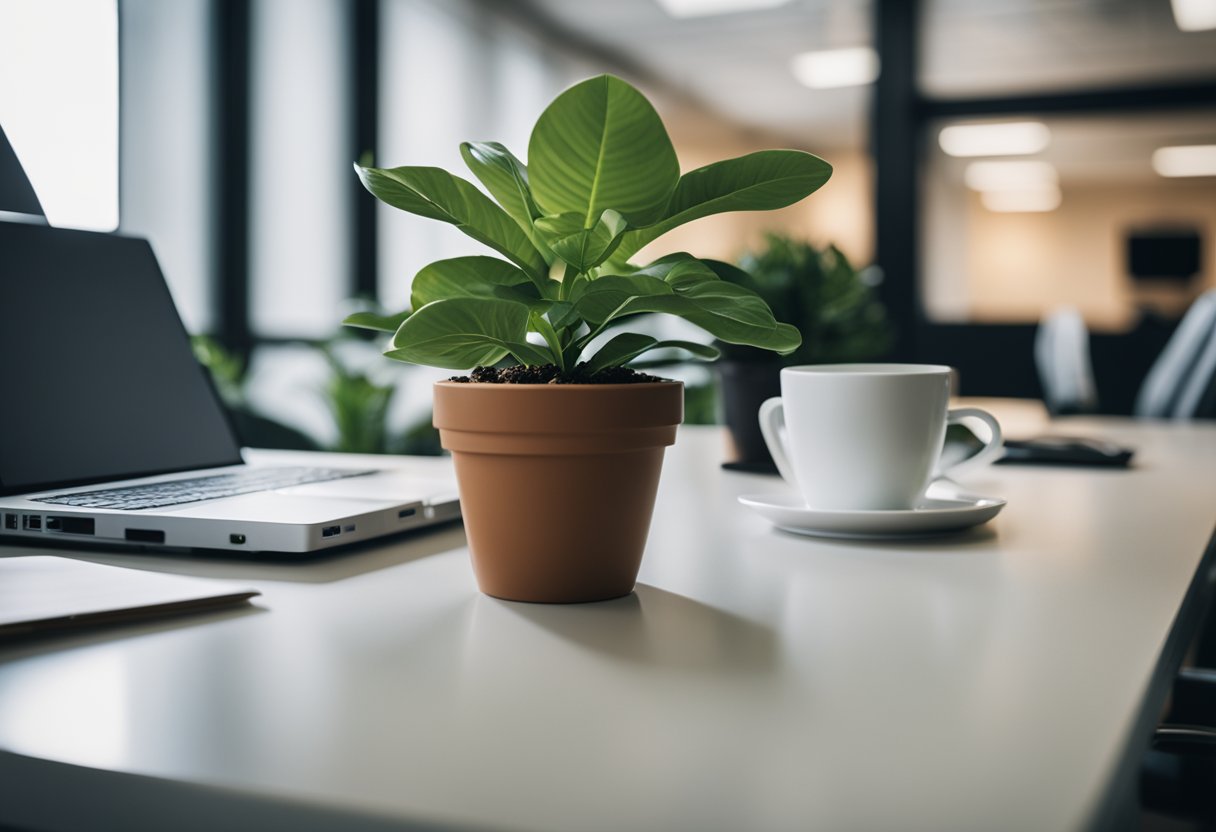
In Singapore, work-life balance is a crucial aspect of workplace culture. Many employees prioritize work-life balance over monetary rewards. According to a survey conducted in January 2019, a majority of respondents expressed a strong desire for work-life balance.
However, achieving work-life balance can be challenging in Singapore’s competitive work culture. Employees often work long hours and even overtime to meet deadlines and achieve targets. This can lead to burnout and affect employee well-being.
To promote work-life balance, employers can implement policies and practices that prioritize employee well-being. For example, offering flexible working hours and remote work options can help employees balance their work and personal lives. Employers can also encourage employees to take breaks and vacations to prevent burnout.
As an employee, you can also take steps to improve your work-life balance. Setting clear boundaries between work and rest, prioritizing self-care, and engaging the help of friends and family can help you achieve work-life balance and reduce work-related stress.
Overall, achieving work-life balance in Singapore requires a joint effort from both employers and employees. By prioritizing employee well-being and making conscious efforts to balance work and personal life, we can create a healthier and more productive workplace culture.
The Role of Legislation in Singapore’s Workplace Culture
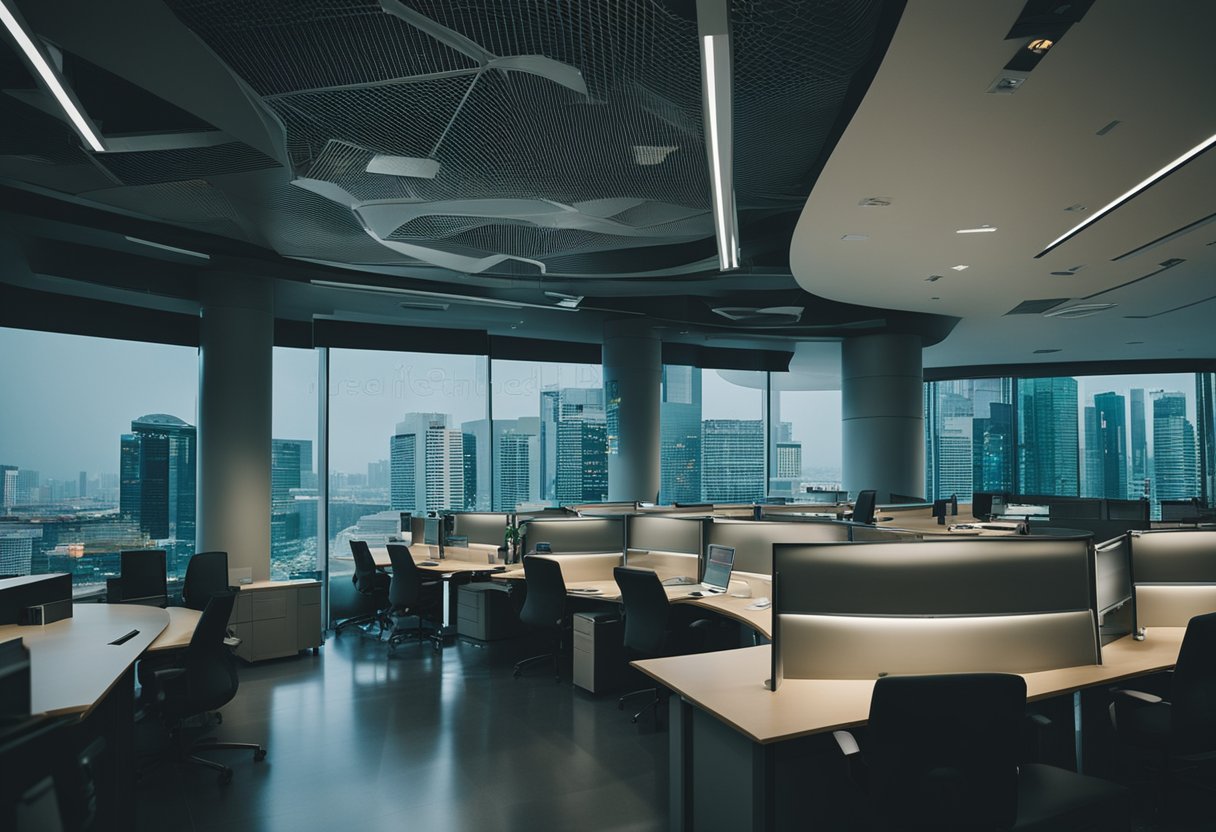
If you’re looking to understand Singapore’s workplace culture, it’s important to consider the role of legislation in shaping it. The country has several laws and regulations in place to ensure that employers and employees are treated fairly and that workplaces are safe and healthy.
One of the most important pieces of legislation is the Employment Act, which sets out the basic terms and conditions of employment for most workers in Singapore. It covers things like working hours, overtime pay, and annual leave, and provides a framework for resolving disputes between employers and employees.
The Ministry of Manpower (MOM) is responsible for enforcing the Employment Act and other workplace regulations. It also provides a range of services to help workers and employers understand their rights and obligations, including mediation and dispute resolution services.
Singapore’s political system also plays a role in shaping the country’s workplace culture. The government is committed to promoting economic growth and development, but it also recognizes the importance of protecting workers’ rights and ensuring workplace safety. As a result, it has implemented a range of policies and programs aimed at improving working conditions and promoting fair and equitable treatment of workers.
Workplace safety is another key aspect of Singapore’s workplace culture. The country has a comprehensive set of regulations and standards in place to ensure that workplaces are safe and healthy for employees. These regulations cover everything from the design and construction of buildings to the use of hazardous materials and equipment.
Overall, Singapore’s workplace culture is shaped by a combination of legislation, government policies, and a commitment to promoting fair and safe working conditions. By understanding these factors, you can gain a deeper appreciation for the country’s unique approach to work and employment.
Influence of Technology on Singapore’s Workplace Culture
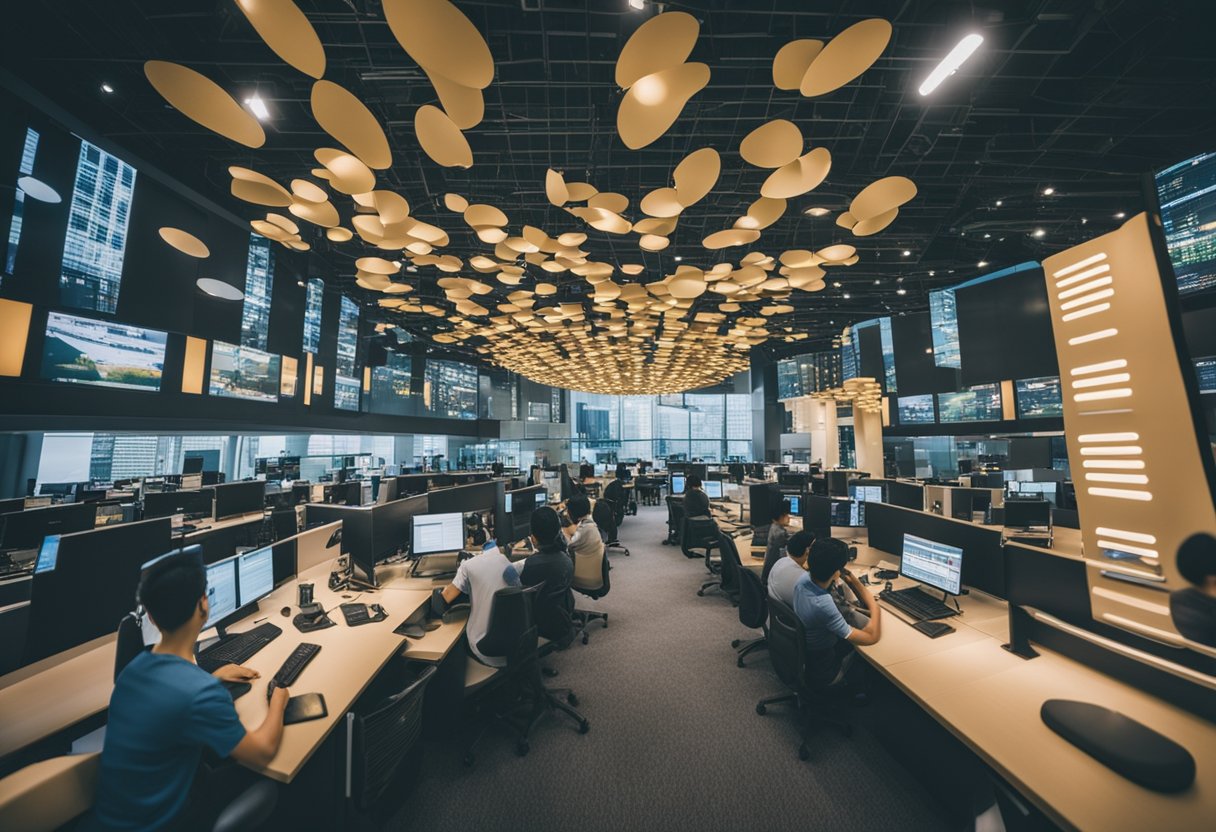
Technology has transformed the way we work, and Singapore’s workplace culture is no exception. With the rise of innovation and media, companies are adopting new technologies to increase productivity, streamline operations, and stay competitive. As a result, the workplace culture in Singapore is becoming more dynamic, efficient, and exciting.
One of the most significant impacts of technology on Singapore’s workplace culture is the shift towards remote work. With the COVID-19 pandemic, many companies have adopted a work-from-home policy, which has led to increased flexibility and autonomy for employees. Remote work has also made it easier for companies to hire talent from around the world, leading to a more diverse and inclusive workplace culture.
Another way technology has influenced Singapore’s workplace culture is through the use of digital tools and platforms. With the rise of cloud computing, companies can now store and access data from anywhere, making it easier for employees to collaborate and work together seamlessly. Additionally, many companies are using digital communication tools like Slack and Zoom to stay connected and communicate effectively, even when working remotely.
Innovation has also played a significant role in shaping Singapore’s workplace culture. With the government’s push towards becoming a Smart Nation, many companies are investing in new technologies like artificial intelligence and machine learning to automate routine tasks and improve decision-making processes. This has led to increased efficiency and productivity, allowing employees to focus on more creative and high-value tasks.
Overall, the influence of technology on Singapore’s workplace culture is exciting. With the rise of innovation and media, companies are adopting new technologies to improve productivity, streamline operations, and stay competitive. As a result, the workplace culture in Singapore is becoming more dynamic, efficient, and inclusive.
Impact of Singapore’s Economy on Workplace Culture
Singapore’s thriving economy has a significant impact on its workplace culture. With a GDP of over $372 billion, Singapore is one of the wealthiest countries in the world. This economic success has led to a highly competitive job market, where employees are expected to be highly skilled and productive. As a result, workplace culture in Singapore is focused on achieving high levels of efficiency and productivity.
Singapore’s economy also has a significant impact on its population. With a population of over 5.7 million people, Singapore is a densely populated city-state. This population density has led to a highly diverse workforce, with people from all over the world working in Singapore. This diversity has led to a workplace culture that values inclusivity and diversity.
Compared to western countries, Singapore’s workplace culture is more hierarchical and top-down. This is due to the country’s Confucian heritage, which emphasizes respect for authority. However, this hierarchical structure does not mean that employees are not valued. In fact, Singapore’s workplace culture places a strong emphasis on teamwork and collaboration.
Malaysia, Singapore’s neighbor to the north, has had a significant impact on Singapore’s workplace culture. Many Malaysians work in Singapore, and their influence can be seen in the country’s emphasis on work-life balance and employee well-being. This emphasis on work-life balance has led to a workplace culture that values employee happiness and well-being.
In conclusion, Singapore’s economy has had a significant impact on its workplace culture. The country’s economic success has led to a highly competitive job market, where productivity and efficiency are highly valued. However, the country’s diverse workforce has also led to a workplace culture that values inclusivity and diversity. Finally, the influence of neighboring Malaysia can be seen in Singapore’s emphasis on work-life balance and employee well-being.
The Future of Workplace Culture in Singapore
Exciting changes are on the horizon for workplace culture in Singapore. As technology continues to advance and the workforce becomes more diverse, companies are looking for new ways to foster a positive and productive work environment.
One key aspect of the future of workplace culture in Singapore is a focus on employee development and education. Companies are recognizing the importance of investing in their employees, providing opportunities for learning and growth that can lead to increased productivity and engagement.
Collaboration is another important factor in the future of workplace culture. As teams become more diverse and global, companies are finding new ways to facilitate communication and teamwork across different locations and time zones.
In addition to these internal factors, reputation and mission are also becoming increasingly important in shaping workplace culture. Companies that prioritize social responsibility and environmental sustainability are more likely to attract and retain top talent, as employees seek out organizations that align with their values.
Leadership and efficiency will also play a key role in the future of workplace culture. Companies that prioritize transparency, trust, and empowerment are more likely to see increased productivity and employee engagement.
Overall, the future of workplace culture in Singapore is bright. By investing in employee development, promoting collaboration, and prioritizing social responsibility and efficiency, companies can create a positive and productive work environment that attracts and retains top talent.
Frequently Asked Questions
How does Singapore’s work culture differ from other countries?
Singapore’s work culture emphasizes punctuality, efficiency, and strict adherence to rules and regulations. Compared to other countries, Singaporeans tend to work longer hours and prioritize work over personal life. Additionally, the hierarchical structure in Singaporean workplaces is more formal than in some other countries.
What are some common cultural challenges faced by foreigners working in Singapore?
Foreigners working in Singapore may face challenges related to language barriers, cultural differences, and adjusting to the fast-paced work environment. It can take time to build relationships with colleagues and understand the unwritten rules of the workplace.
What are some ways to maintain work-life balance in Singapore’s fast-paced work culture?
To maintain work-life balance in Singapore’s fast-paced work culture, it is important to set boundaries and prioritize self-care. This may include taking breaks throughout the day, delegating tasks when possible, and finding time for hobbies and social activities outside of work.
What are some unique aspects of Singapore’s workplace culture?
One unique aspect of Singapore’s workplace culture is the emphasis on harmony and consensus-building. Additionally, Singaporean workplaces tend to have a hierarchical structure, with clear lines of authority and respect for seniority.
How can companies in Singapore foster a positive workplace culture?
Companies in Singapore can foster a positive workplace culture by prioritizing employee well-being, promoting open communication, and providing opportunities for professional development and growth. Additionally, companies can encourage collaboration and teamwork to build a sense of community within the workplace.
What are some tips for navigating Singapore’s work culture as an American?
To navigate Singapore’s work culture as an American, it is important to be respectful of local customs and norms. This may include adapting to the hierarchical structure of the workplace, being mindful of communication styles, and taking time to build relationships with colleagues. It is also important to be open-minded and willing to learn from the local culture.




